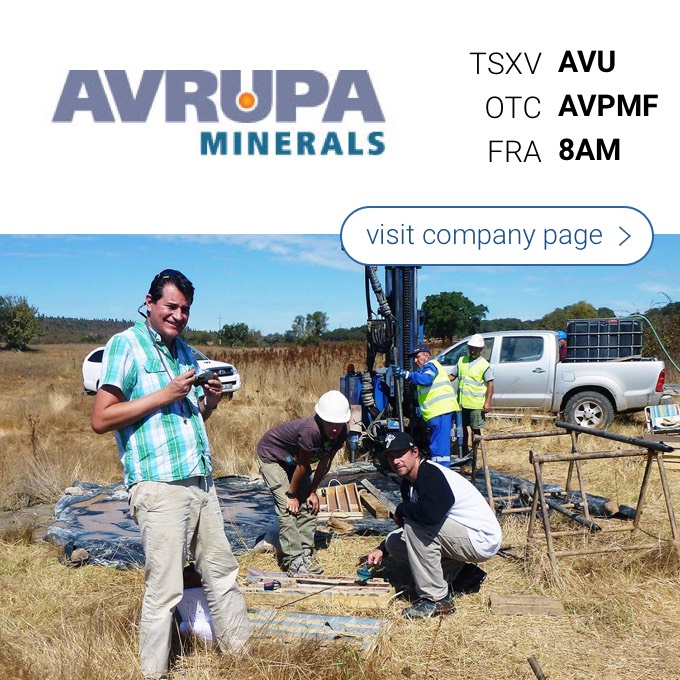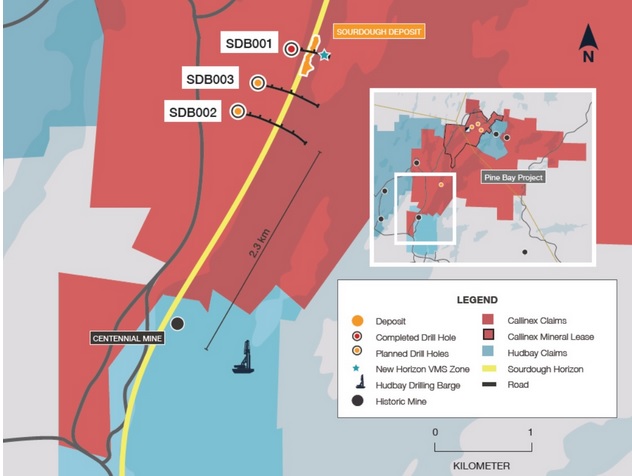It has been a while since our previous report on Metanor Resources (MTO.V) and we promised to release an update after the company would have filed its financial report for the financial year 2013/2014 which ended in June of this year.
[margin20]
[download_link link=”http://caesarsreport.com/freereports/CaesarsReport_2014-11-12.pdf” variation=”blue”]DOWNLOAD REPORT [690kB][/download_link]
[gview file=”http://caesarsreport.com/freereports/CaesarsReport_2014-11-12.pdf”]
[download_link link=”http://caesarsreport.com/freereports/CaesarsReport_2014-11-12.pdf” variation=”blue”]DOWNLOAD REPORT [690kB][/download_link]
[margin40]
[fancy_header3]TEXT VERSION[/fancy_header3]
[margin10]
The Output and Costs in Q4 FY 2014
Metanor has produced just over 13,000 ounces of gold in the fourth quarter of the financial year 2014, and this brought the total gold production at 48,847 ounces, just shy of the 50,000 ounce mark which the company is aiming for to produce this financial year. The cash cost was much better than we expected at $786/oz and even the all-in sustaining cost per ounce was just $1010/oz and this is a very nice positive surprise.
The Numbers
Shareholders might be scratching their heads to see the company produced almost 50,000 ounces of gold and reporting just C$38.5M in revenues. This phenomenon is quite easy to explain as the company has only declared commercial production exactly one year ago halfway November, and according to the accounting standards, all the revenues from gold sales before commercial production was declared cannot be added as ‘revenue’ but have to be interpreted as a ‘compensation’ for capital expenditures. That’s the only reason why this discrepancy exists, and if Metanor is effectively able to produce 50,000 ounces per year, we would expect the annual revenue to reach approximately $55M, after taking the streaming deal with Sandstorm Gold (SSL.TO, NYSEMKT:SAND) into consideration.
So despite showing less revenues than what you’d have expected, Metanor was able to record a gross profit of C$3.5M. Deducting the other expenses (General and Administrative and Financial expenses), the net loss was roughly C$2.9M, which is actually better than we expected.
Mining investors should remember one thing; you shouldn’t care too much about net losses or net profits as it’s extremely easy to tweak those numbers. Instead, the cash flow statements offer much more valuable information. If you’d correct the operating cash flow for interest payments, Metanor generated C$3.4M in operating cash flow in just 7.5 months time, and as the sustaining capital expenditures were just C$2.2M, Metanor was actually free cash flow positive (corrected for non-recurring events).
The exploration program
Metanor has been drilling tens of thousands of meters on its property in the past financial year and once again aims to complete 60,000-65,000 meters of drilling at Bachelor Lake during this year. Fortunately the cost of drilling has come down considerably, and a large drill program will probably cost just C$10M.
This sounds like a lot of money, but if the company is able to keep its cash costs below $800/oz and if the USD/CAD exchange rate remains at this level, Metanor should still be free cash flow positive even after an extensive drill program.
In the long run, drilling the additional 60,000 meters at Bachelor Lake will (well, should) really pay off as firstly, it will increase the confidence in the mineralized zones and secondly it will very likely add several hundreds of thousands of ounces of gold to the currently existing resource estimate. This could be very important because if an expanded resource estimate could be added to the mine plan, the ‘official’ mine life will increase exponentially and this will command a better market perception of the company’s asset.
The strength of the balance sheet
We’re happy to see the company’s working capital position improved into the positive territory at C$700,000. This isn’t impressive at all, but keep in mind Metanor had a working capital deficit of in excess of C$5M the year before, so the situation is most definitely improving.
Despite the large drill program, Metanor should be able to continue to add cash to its balance sheet. The main question will be whether or not it will have sufficient cash on hand to repay the C$10M convertible debt in August of next year. If the gold price doesn’t deteriorate further and if Metanor Resources can keep its operational performance on par then it should be possible to pay off the convertible debt without issuing new shares.
Unfortunately the company seems to have abandoned the release of its monthly production numbers so it’s more difficult to guesstimate the operating performance at this point in time. We do hope Metanor will reconsider its PR-strategy and will start to announce its monthly production results again.
Conclusion
Investors shouldn’t care too much about a net loss, as this was mainly caused by depreciation charges (which are obviously non-cash charges). The cash flow statements indicate the company was free cash flow positive and this an important achievement as this will allow Metanor to clean up its balance sheet and increase its cash position to be able to repay the loan due in 9 months from now.
The company’s turnaround seems to be quite successful, and we hope Metanor will indeed produce its planned 50,000 ounces of gold during this financial year. We’d also be very happy to see some kind of ‘interim’ resource estimate to see where the company stands in its efforts to add ounces to the total resources. Metanor is currently worth roughly C$25M, which means that the market seems to be ignoring any upside exploration potential.
[divider_top]
Disclosure: Metanor Resources Inc. is a sponsoring company. Please see our disclaimer for current positions.













